The appropriate age for braces will result in high-quality orthodontic treatment and shorten the treatment time. So What Is the Appropriate Age for Braces? The following article will answer your questions.
At what age can you get braces?
Determining the appropriate age for braces will result in high effectiveness. The longer the age, the longer the orthodontic treatment, as the jawbone becomes more rigid and the teeth are harder to move. Therefore, getting braces at a younger age will be more advantageous.
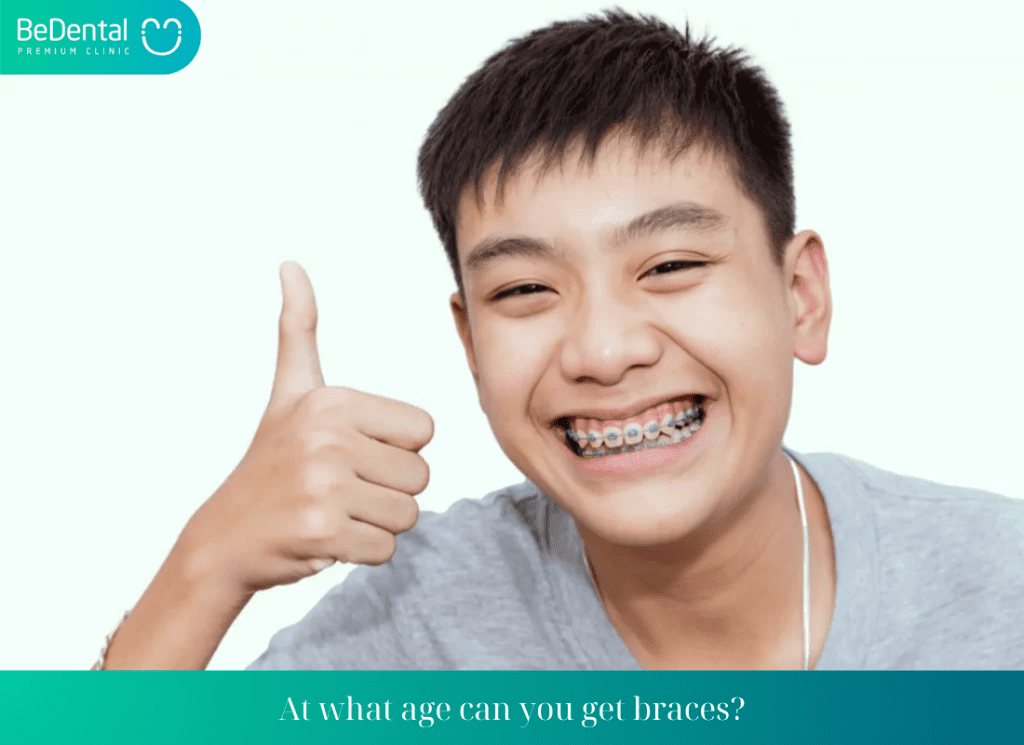
According to doctors, the appropriate age for braces is typically between 10 and 14 years old. During this age range, the child’s teeth and jawbone are still developing. Tooth movement will occur more easily and with less discomfort. Braces for children also have less impact on work and daily life compared to adults. Therefore, the most appropriate age for braces is between 10 and 14 years old.
See more: What is Orthodontic archwire
However, you can still get braces at an older age, as long as your teeth and bones are healthy. However, with older age, the bone structure becomes denser and harder than in youth, making tooth movement more difficult, leading to reduced or slower treatment results compared to getting braces at a younger age.
What Is the Appropriate Age for Braces?
What Is the Appropriate Age for Braces? Braces are an effective method to correct the position of the jaw and misaligned teeth, helping patients achieve a beautiful smile, strong teeth, and good chewing function. To help children confidently enter life, parents need to take the time to care for their children’s oral health in a timely and appropriate manner.
Orthodontic trainers for children aged 6-11- What Is the Appropriate Age for Braces?
During the transition period from baby teeth to permanent teeth, habits such as tongue thrusting, lip sucking, finger sucking, reverse swallowing, incorrect tongue positioning, or mouth breathing are the main causes of crooked teeth and imbalanced facial growth.”
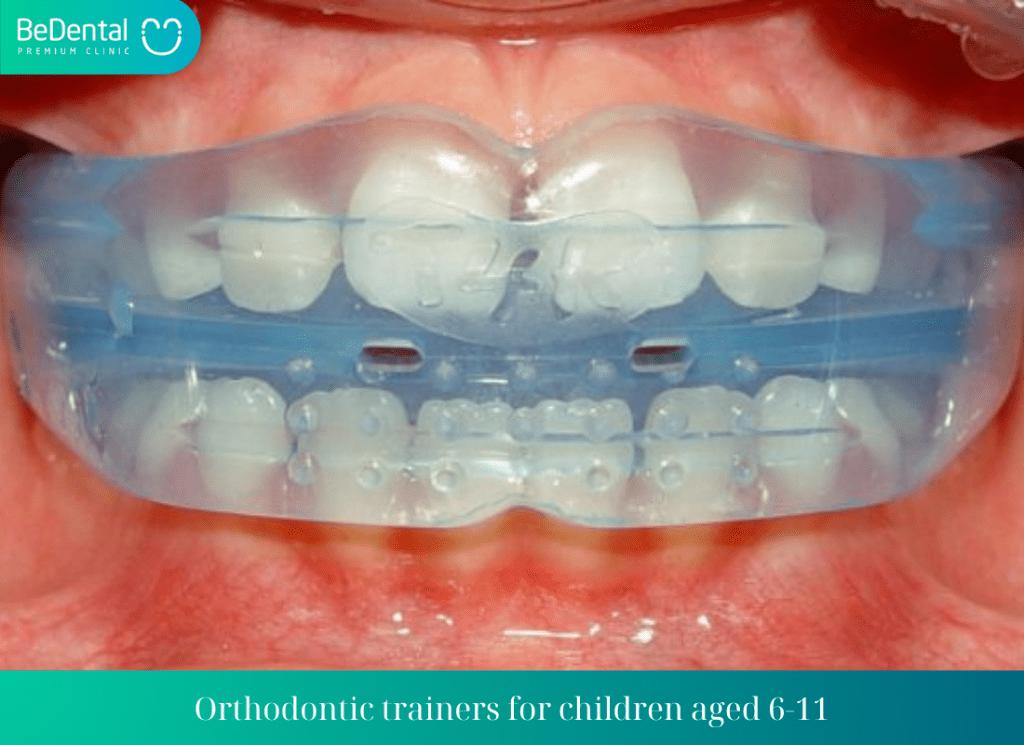
During this stage, the jaw trainer is a suitable orthodontic tool. The jaw trainer is made of soft rubber plastic and is only worn at night. It helps balance the forces of the tongue, cheeks, and lip muscles, while also assisting in aligning the jawbone and teeth.
However, wearing a jaw trainer orthodontic appliance at this age does not guarantee that the child will have completely straight teeth when they grow up. The jaw trainer only guides tooth eruption and helps the jaw develop in balance, as well as helps eliminate bad habits.
The best age for braces is from 12-16 years old.
The best time to use fixed braces is within 2 years after the onset of puberty, as the body is still developing and the jawbone is not yet fixed.
See more: Signs of gum recession during braces
During this period, adjusting the position of the jaw, correcting issues such as overcrowded teeth, protruding teeth, or teeth misalignment can be easily done without the need for tooth extraction. Additionally, the orthodontic forces act quickly, allowing teeth to shift rapidly, providing optimal cosmetic results.
When orthodontic treatment is done at the right age, children can easily maintain their orthodontic results without having to wear retainers into adulthood. Monitoring and controlling comprehensive dental and jaw development in children through the use of supportive devices during puberty is essential, typically lasting about 2-4 years.
Can adults aged 17-35 get braces? What Is the Appropriate Age for Braces?
Unlike children, adults are no longer in a growth and development stage. Therefore, the duration of fixed orthodontic treatment is also shorter, usually around 18 months for cases that do not require tooth extraction and 24 months for cases that do require tooth extraction.
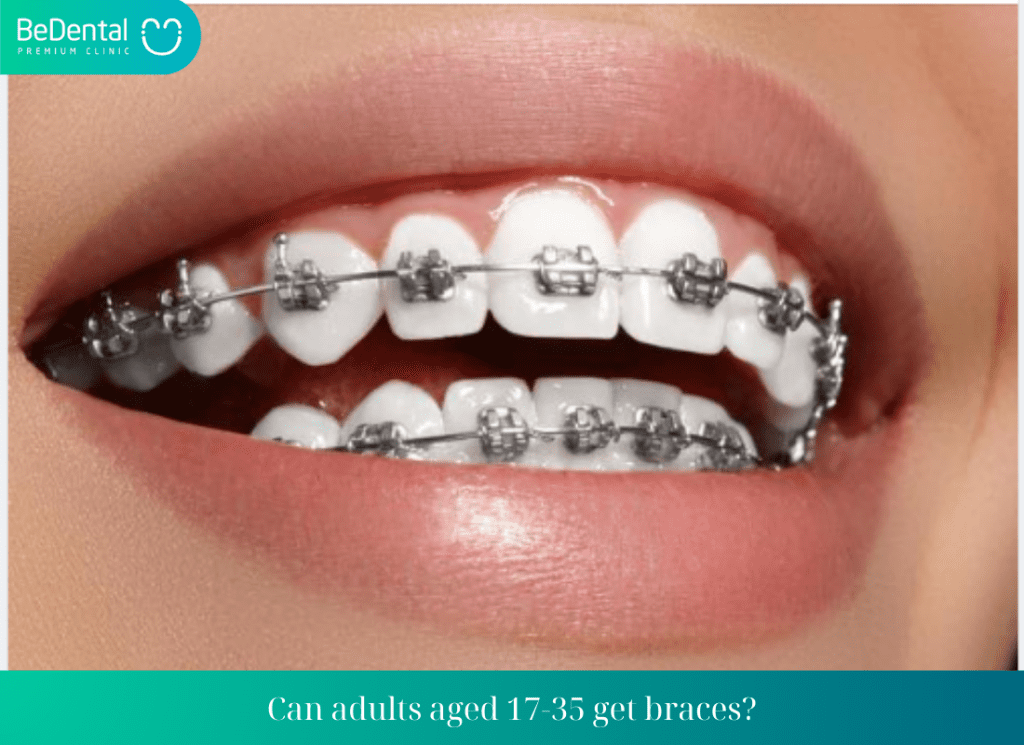
However, in adults, since the bones have fully developed and both the jawbone and teeth are no longer soft, the effectiveness of orthodontic treatment at this age may not be as perfect as during the adolescent years. Nevertheless, there are now many modern dental techniques and technologies that help straighten teeth effectively, so age is no longer a significant issue.
It is never too late to improve your smile or address bite and misalignment issues. Many cases of braces for adults at the age of 30 still achieve good results. However, orthodontic treatment at this age will take longer, leading to higher costs.
See more: What is Abutment?
When undergoing orthodontic treatment, adults often focus more on cosmetic issues: how does it affect appearance during braces? How long does the treatment take? Do I need frequent visits to the orthodontist? Does wearing braces impact work and daily activities? There are many orthodontic methods for adults to meet aesthetic, treatment duration, and other requirements… so you can choose comfortably.
Is there an age when you cannot get braces anymore?
Many older patients, who did not have the opportunity to get braces when they were young, wonder if they can still get braces after the age of 40. Medically, there is no age limit for getting braces, as long as the bones are good and meet the necessary health conditions. In fact, in developed countries, having three generations in a family wearing braces is not uncommon.
However, orthodontic treatment in older patients requires thorough examination by skilled doctors to ensure good prognosis and determine the correct treatment plan.
Benefits of getting braces early
Orthodontists always aim to achieve perfect dental alignment for patients. However, this goal becomes more challenging as patients get older. Therefore, getting braces early is considered a smart decision to achieve perfect dental alignment and a beautiful face.
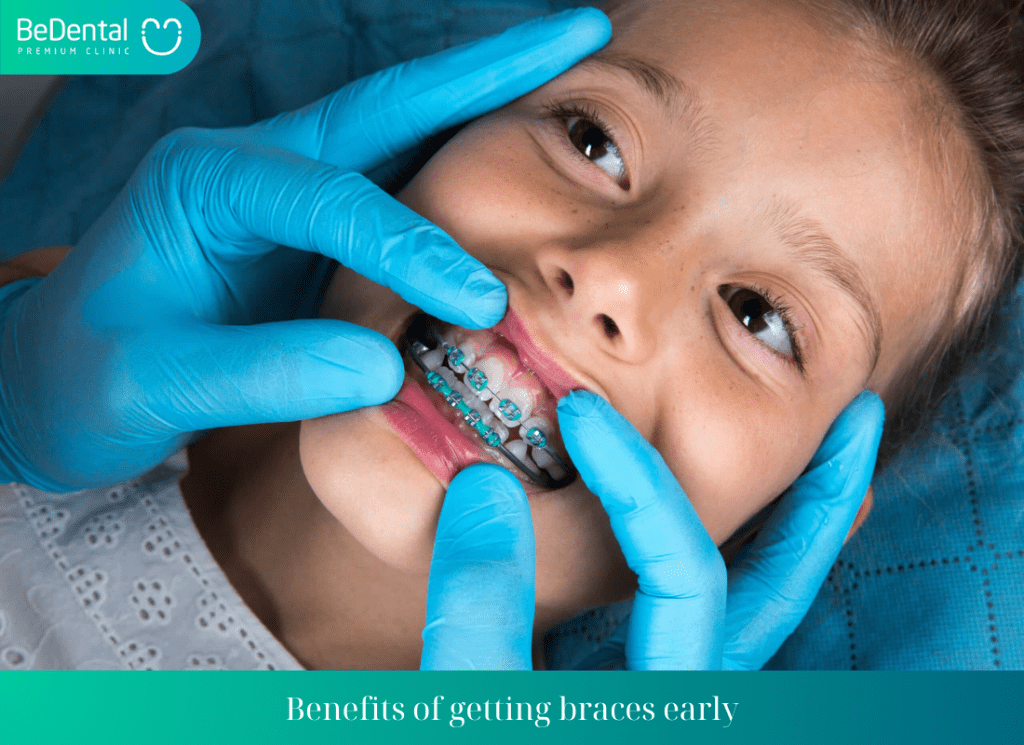
Starting braces early allows the orthodontist to intervene in the bone development, helping the child have a balanced facial bone structure and avoid deformities. In addition, getting braces early also increases the chance of achieving ideal bite alignment and improving dental issues if treated early.
At this time, the jawbone is still in the growth phase, allowing effective braces by inhibiting or stimulating the growth of the treatment appliance, to bring the jaw joints to the correct position when closing tightly.
Getting braces early helps avoid the need for fixed braces on both jaws and increases the opportunity to choose non-extraction treatment during fixed braces.
Advice on orthodontic braces for you
See more: Dental implants
Instead of worrying and hesitating about getting braces, consult a dentist for accurate advice.
In fact, many people question the effectiveness of braces, often due to concerns about effectiveness and weak teeth. To make the most informed decision, visit the dentist directly. After examining your oral health, the dentist will provide appropriate advice. Do not delay too long as it will only waste your time and miss the opportunity for effective braces.
Choose the right method for yourself
Choosing the right method for yourself is crucial. Currently, the two main methods for braces are traditional braces and clear aligners. Traditional braces often provide much more noticeable results.
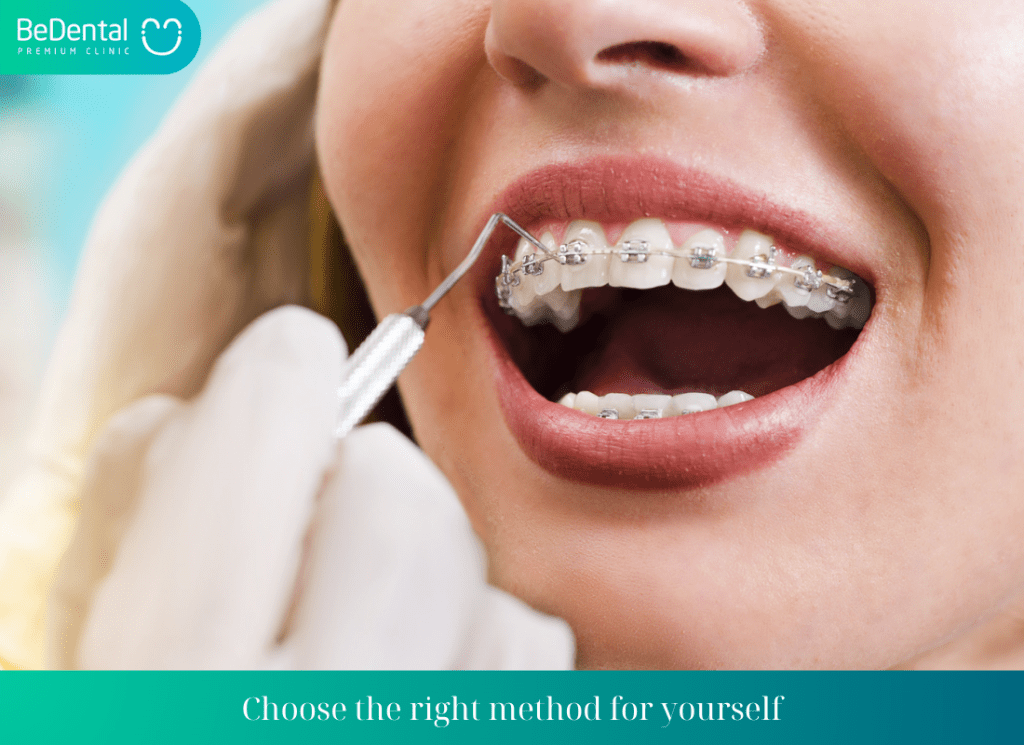
However, this method may not guarantee the desired aesthetics. Additionally, oral care is not as convenient as with clear aligners.
Therefore, choose a method that is suitable for yourself, while considering the convenience for your work and daily activities.
See more: Do braces cause toothloss?
Stay persistent throughout the braces process
The extended duration of braces is a factor that makes many people feel discouraged during the treatment process. In addition, the discomfort during braces, along with the inconveniences of eating and daily oral hygiene, also contribute to making people lose interest in braces. This is why many people decide to give up during the braces process.
Furthermore, braces require strict dietary restrictions (avoiding hard, chewy foods, etc.). Moreover, daily oral hygiene should also be strictly followed. This is to prevent oral health issues during braces (such as cavities, gum inflammation, etc.). For all these reasons, braces require patience and effort from you.
Maintain good eating habits and oral care, as this is crucial. Remember that the excellent results after the braces process will be a valuable motivation! Hopefully, the information above has helped you understand more about the appropriate age for braces and why this is important.
Conclusion
In conclusion, the decision the appropriate age for braces is crucial for achieving optimal dental health and aesthetics. Starting braces early can help prevent potential deformities and misalignments, ultimately leading to a balanced facial bone structure.
It is important to choose the right orthodontic method that suits your needs and lifestyle, considering factors such as convenience and effectiveness.
Despite the challenges that come with wearing braces, such as discomfort and dietary restrictions, maintaining good oral hygiene and sticking to the treatment plan are key to successful outcomes.
While the braces process may require patience and effort, the long-term benefits of a beautiful and healthy smile make it a worthwhile investment in your overall well-being. Consult with a dentist to determine the best age to begin orthodontic treatment and embark on your journey towards a confident and radiant smile.
Tư vấn chuyên môn bài viết:
BÁC SĨ DƯƠNG THỊ THÙY NGA


 Tiếng Việt
Tiếng Việt 한국어
한국어 日本語
日本語 中文 (中国)
中文 (中国)



